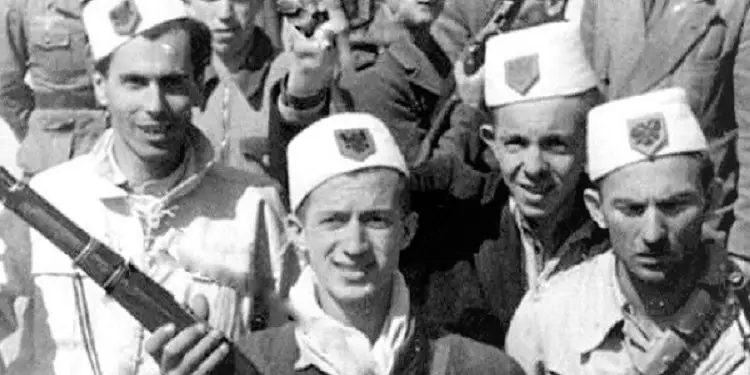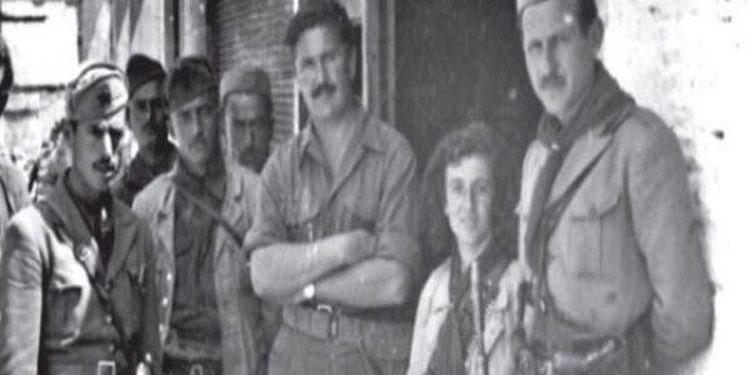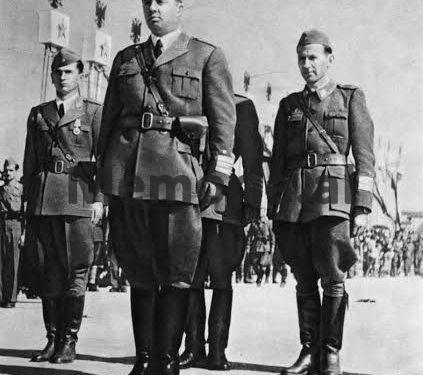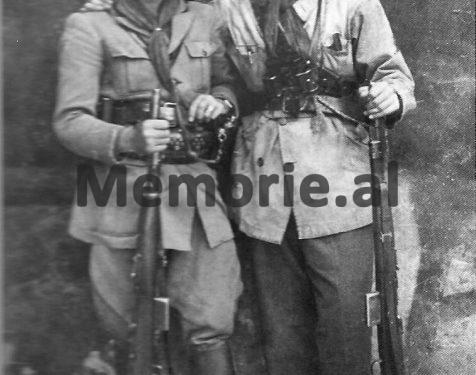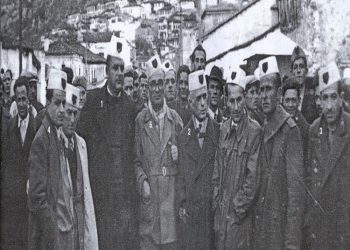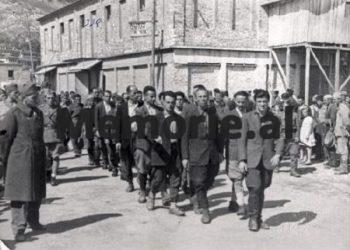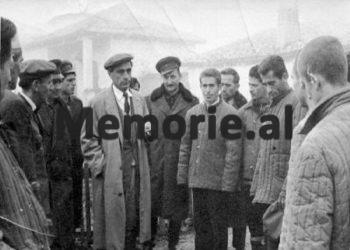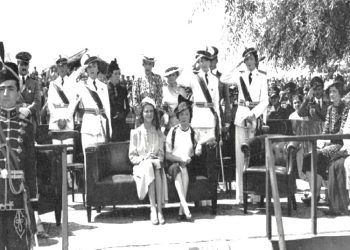From Kastriot Dervishi
Memorie.al / After the tearing of the ‘Mukje Agreement’ and the conclusion of the Labinot Conference in September 1943, the communists officially began the civil war. Under the direction of the Yugoslavs Miladin Popovic and Dushan Mugosha, they brought one of the most horrific tragedies to the country, with severe consequences for national unity. Right after Labinoti, murders became a common occurrence. The organizational secretary of the PKSH, Koçi Xoxe, wrote on October 3, 1943, to the party’s general secretary, Enver Hoxha, among other things: “Aside from the strikes we inflicted on (the ballists – note), we are pursuing them relentlessly for extermination. As for the fight against the Germans, almost nothing.”
The fight against non-communists became the true goal of what was supposed to be a struggle against the occupier. On October 21, 1943, the First Attack Brigade (partisan) led by Dushan Mugosha attacked the ballist forces of Isa Manastirliu, Hamit Matjani, Tefik Sfiri, and Hajdar Cakran in Golem, Lushnje.
It is said that the ballist forces numbered 400 individuals, of which 10-15 were killed. Many villagers were taken prisoner. By the order of Dushan Mugosha and Mehmet Shehu, around 80 prisoners were executed (Mehmet Shehu states; 60).
These ballists were from the villages of: Remas, Kryekuq, Grabian, Shënkollas, Kalush, Gur, Shënpremte, Sulzotaj, and Biçak (from this village, fewer than 50 were executed). Based on this event, through a pamphlet dated October 26, 1943, ‘Balli Kombëtar’ announced that “fratricide had begun.”
Regarding the Lushnje massacre, the commander of the First Brigade, Mehmet Shehu, informs with a special letter (see the facsimile), which we publish in full below.
To the General Staff of the National Liberation Army
When we were in Dumre, I set out with 2 battalions of the brigade and 3 mortars to confront the bandits of Isa Manastirliu, Hamit Matjani, Tefik Cifiri, and Hajdar Cakran. When I arrived near Lushnja, the ballists were in Myzeqe, so we prepared to strike Lushnja.
However, before we launched our attack on Lushnja, with the forces of the Brigade and those in Lushnja, Isa Manastirliu unexpectedly emerged on our right flank to flank us, while Hamit Matjani planned to take our left flank from Kosovo. We were forced to respond immediately. We surprised and routed the 400 ballist bandits: 172 were captured, 10-15 were killed.
We judged the prisoners. The court was composed of me, under the command of the local Lushnja commander, and one partisan from the first battalion of the brigade. We (the court) decided on the execution of 65 ballists. The others, 29 volunteers, for Brigade and local battalions, were released unharmed.
Indeed, Balli suffered a severe blow with the execution of 65 of his soldiers (nest of Hamit Matjani and fighters against us, armed, bandits, criminals, and robbers of the people), but I think I was wrong; we executed, we were very strict.
“It would have sufficed to execute 15-20 ballists, among the most responsible. However, this time, the main fault is mine personally, as the trial was presided over by me and, to some extent, the other two members were influenced by me.
I, relatively intoxicated by hatred against the traitorous ballists, revolted by their crimes and betrayals, seized by the micro-bourgeois temperament of the moment, laughed at the thought of this unmeasured action!
This also stemmed from the fact that I was alone and the other comrades of the brigade staff were far away; I could not consult with them because time did not allow it.
Had the brigade staff been present at the trial, they certainly would not have reached those conclusions. The traces of this terror must be erased, and I hope we will eradicate it in the future.
This will serve me personally well, so as not to be provoked again, to be more cautious, and not to let myself be swayed by sentiments and the uproar of the moment, which still manifest in me as a consequence of a micro-bourgeois, patriarchal, reactionary, medieval origin./Memorie.al
V.F. L.P.
Best regards,
October 30, 1943
Commander of Brigade I
Mehmet Shehu




